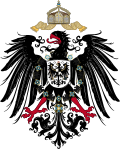You can help expand this article with text translated from the corresponding article in German. (October 2024)Click [show] for important translation instructions.
|
This article relies largely or entirely on a single source .(August 2021) |
| This article is part of a series on |
| Conservatism in Germany |
|---|
 |
Studienzentrum Weikersheim (Weikersheim Think Tank) is a conservative and Christian democratic German political think tank, that was founded in 1979 by Hans Filbinger, Helmut Metzner and others on Schloss Weikersheim in Germany. [1] The Studienzentrum is bringing traditional conservative ideas with positions and people of Neue Rechte (new far-rights).